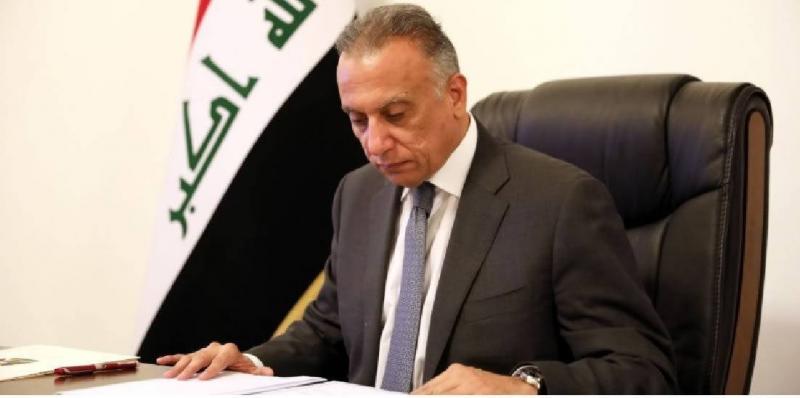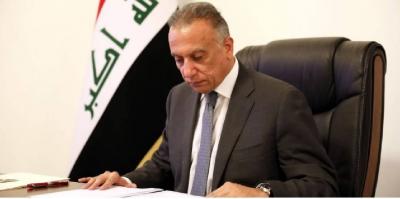The Iraqi Prime Minister, Mustafa Al-Kadhimi, is expanding his tools to fight corruption to include external entities, following tangible progress made in recent times, such as the arrest of political leaders involved in corruption cases and the activation of specialized oversight agencies in this regard. Iraq is considered one of the most corrupt countries in the world, according to Transparency International's indicators over the past years. Recently, the Iraqi President, Barham Salih, submitted a draft law to Parliament aimed at recovering embezzled funds abroad, as part of a wide-ranging campaign launched by Al-Kadhimi upon assuming office.
The Iraqi campaign aims to broaden cooperation with the international community, relevant organizations, and neighboring countries and the Arab region concerning embezzled funds abroad, as well as support in halting the depletion of the country’s resources through companies and individuals with extensive connections and local influence.
**World Bank Involvement**
On Tuesday, Mustafa Al-Kadhimi met with a delegation from the World Bank to discuss mechanisms to support Iraq in combating corruption. According to a statement from the Prime Minister's office, "Prime Minister Mustafa Al-Kadhimi received today the Vice President of the World Bank Group for the Middle East and North Africa, Mr. Farid Belhaj, and his accompanying delegation." During the meeting, they discussed ways to enhance cooperation between Iraq and the World Bank across various programs and areas, focusing on mechanisms for combating corruption and restructuring public service to increase efficiency, establishing conditions for sustainable development and optimal investment in human resources. They also discussed some stalled World Bank projects in Iraq and agreed on means to reactivate them.
Al-Kadhimi emphasized Iraq's determination, despite all challenges, to continue along the path of economic reform based on long-term visions that rely on effective solutions. He stated, "The government prioritizes Iraq's interests and the needs of the Iraqi people, in addition to benefiting from the advice offered by reliable financial institutions like the World Bank."
Iraqi funds can be divided into two parts; the first dates back to Saddam Hussein's time, belonging to officials of the former regime and members of the Baath Party, along with the official state funds over the years. The other part pertains to Iraqi officials after Saddam Hussein's regime who fled abroad after corruption cases were revealed against them, and successive governments have been unable to bring them back to the country.
The first attempts at money laundering in Iraq occurred in 2005 when former Defense Minister Hazem al-Shalaan fled with about one billion dollars, and Iraqi courts sentenced him to seven years in prison, yet he remains outside Iraq without the recovery of those funds.
**Large Amounts for Iraq**
Kadhim Al-Shammari, a member of the Integrity Committee in the Iraqi parliament, stated that "combating corruption and recovering Iraq's embezzled funds are governed by international laws, which necessitates that officials and leaders take steps towards the international community, such as the United Nations, Washington, and Britain, in addition to pressuring the Security Council to issue a resolution that obliges member states to cooperate with Iraq in this regard."
The Iraqi MP added in a statement to "Sky News Arabia" that "the looted funds deposited in other countries' banks represent very large amounts relative to Iraq's budgets," pointing out that "government measures in this regard are timid; there is a special department for recovering Iraqi funds, but from time to time, only some amounts estimated at 200 or 300 million dollars are recovered, which is insignificant." He referred to "the experience of the Paris Club when several countries collectively canceled their debts to Iraq, with notable cooperation, and this is what we need now in this complex file."
Last Monday, Iraqi authorities announced the issuance of 53 arrest and summons orders against current and former high-ranking officials, including parliamentary deputies, ministers, and governors, on corruption-related charges during the past period, as part of the ongoing campaign. The Iraqi Integrity Commission, a formal entity concerned with pursuing corruption, stated in a release that "the judiciary has issued since last April 8 arrest orders and 45 summons orders for investigations against senior officials regarding corruption cases," noting that "the orders included three members of the current parliament, as well as one from previous sessions."
It indicated that "the arrest and summons orders included a former minister and two previous ministers, in addition to eight governors, including two current ones, and 15 general directors, seven of whom are current and seven former, along with one former general director, as well as 23 members of provincial councils."
In August, Al-Kadhimi formed a special committee to investigate major corruption files and entrusted the task of executing arrest orders to a special force from the Prime Minister's office. This committee has managed to arrest dozens of officials and political leaders accused of corruption cases, including some leaders of armed groups, such as the commander of Anbar Operations for the popular mobilization forces, Qassem Musleh.
Militias and parties close to Iran consistently criticize this committee, locally known as the "Abu Ragheef Committee," led by the well-known officer in the Ministry of Interior, Ahmed Abu Ragheef, due to the arrest of figures close to the leaders of those parties and groups.




